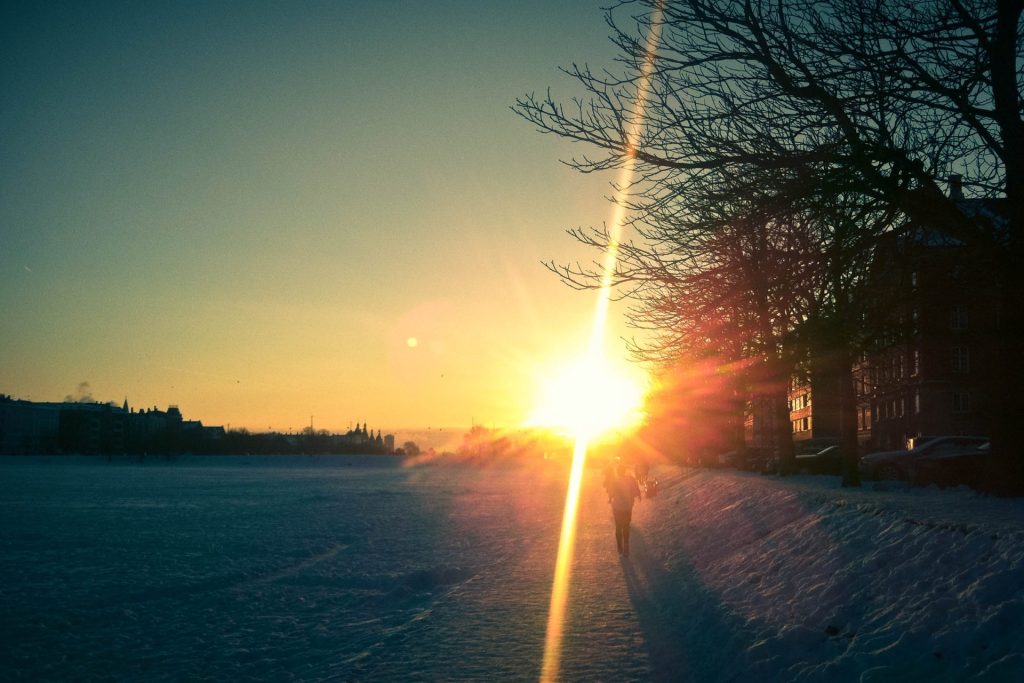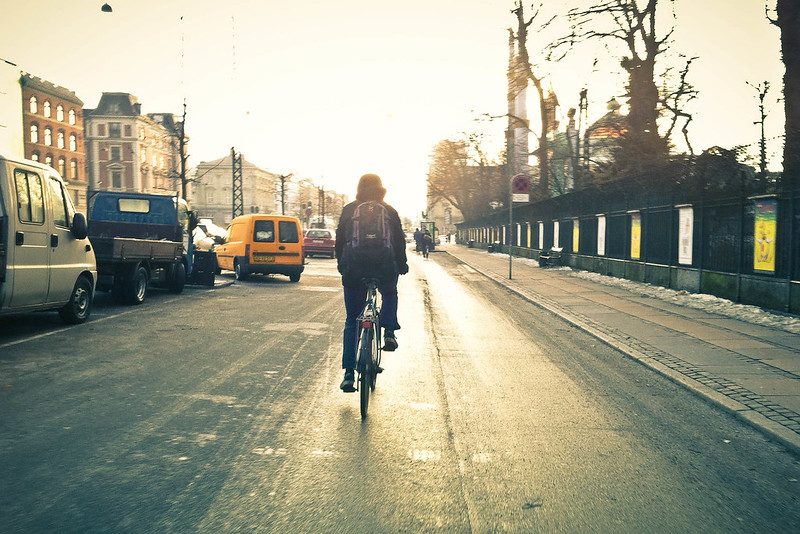Slow Ways editor Tom Morris weighs up the reasons for and against the clocks changing and reflects on what these changes mean for walkers
The practice of putting the clocks forward one hour in March and back in October has been with us since the first world war, although campaigners were thinking about it decades beforehand. Every year the debate starts anew about whether this practice has any place in modern life, both in Britain and in other countries around the world.
Why do the clocks change?
Time has not always been measured on mechanical clocks. In Roman times, sundials were used to measure ‘solar time’. Because the sun ‘moves’ quicker through the sky in the winter, this means that although the same number of hours appears on the face of the sundial, the hours are shorter in winter and longer in summer. On a clock, we use the average of these two extremes to create the standardised hour and day.

In 1916, the British government changed the clocks in an effort to promote productivity and save energy during the war effort, and even then it was only to catch-up with Germany, who had already done it.
Today, clocks change around the world in ‘influential’ nations including all of the European Union, Australia, the USA and Canada, although the majority of the world’s population don’t change their clocks.
BST ‘springs forward’ on the 26th March 2023, 94 days after the winter equinox (the year’s shortest day, 22nd December 2022), and 87 days before summer equinox (the longest day) on 21st June. However, we’ll ‘fall back’ into Greenwich Mean Time on 29th October, 130 days after the summer equinox and 54 days before the winter equinox. This means that BST lasts a total of 217 days, whereas GMT only lasts 148 days. Therefore although it may sound like GMT is the ‘default’ time, BST is in fact with us for a longer portion of the year.
Why should we stop changing the clocks?
When we ‘spring forward’ as you know, we get a darker morning in exchange for a brighter afternoon, and when we fall back we get a brighter morning in exchange for a darker afternoon. This has an effect, say abolitionists, on road safety. One of the most important voices in this debate has thus become the Royal Society for the Prevention of Accidents, or RoSPA. In theory sticking to BST means fewer road incidents in the evening, but more in the morning, with a particular effect on the safety of cyclists and walkers.

Alternatively we could make GMT the default. This would mean lighter mornings and darker evenings, which would, supporters say, make more sense for circadian rhythms and thus public health.
Of course there are many people in our society working to different schedules to the rest of us: for example maintenance workers who do most of their important work at night. With different groups more or less dependent on solar time versus clock time, it’s very difficult to say which option benefits the most people. The Victorian campaigners for British Summer Time acted out of a paternalistic concern for the public who they believed were missing out on the sun’s golden mornings, but in reality for many shift workers the change meant waking up even earlier, and darker. Therefore it is important that any decisions on the matter are made democratically.
It is a common misconception that farmers are the lobby keeping the clock-change in place. However farmwork is mostly dictated by solar time, so changing the numbers on the clock only introduces an unnecessary challenge.
What does the clock change mean for walkers?
You’d think that for walkers, the time on the clock-face wouldn’t matter so much. But when you’re walking a Slow Way there are many things that you have to keep an eye on beyond the solar time. For example, perhaps you want to take a bus back to the start of the walk. Therefore, what time the buses start and finish running for the day matters a lot, and affects whether you end up walking more in sunlight or in the dark.
With all that in mind, we open the floor to the Slow Ways community:
- Should we drop the clock-changing practice?
- If so, do we keep BST, GMT, or some other time entirely?
- How would it affect your work, family and social life?
Clocks change for reasons of industry and was begun for productivity reasons by ‘influential’ industrial nations whose populations are city based.
Nature based activities like agriculture tend to work by the sun rather than to a number. As you have said above.
Walking is a nature based activity, and walkers pay keen attention on sunrise and set, as well as the weather.
Given that industry and cities have lighting, changing the clock seems redundant and gives us ‘jet lag’ twice a year. Therefore we should not change the clocks.
My preference is for GMT. Mid day is midday. The sun would rise and set (roughly due to earth’s wobble) equal hours before and after midday. easy to calculate rise, set and the hottest part of the day. Numbers and nature aligned together.
Leave the clock alone and set it to GMT.
The use of the terms ‘morning’ and ‘evening’ to refer to clock times, albeit imprecisely, muddies the water: ‘Morning’ really means when it gets light and ‘evening’ really means when it starts to gets dark. No amount of fiddling with clocks can change that.
Personally, I’m not very good at getting up in the morning, so come the end of March, when everything starts happening an hour earlier (relative to mean solar noon), I’m going to be wasting less daylight as the latest I can get up is also an hour earlier.
It’s intriguing that the nominal standard working day of 9-5 is symmetrical about mean solar noon at Greenwich when we’re on BST. Putting the working day at the centre of the period of daylight is probably a good compromise from employers’ point of view, but when there is more than 8 hours of daylight we reach a situation where many people would prefer to get their (nominal) 8 hours of work done at the beginning of the period of light, so as to have more daylight after work than before. I think the other way round would be less popular because one would always have their eye on the clock so as not to be late for work.
It’s also intriguing that our waking day (nominally 16 hours) is not symmetrical about noon (or mean solar noon at Greenwich). Most people don’t go to bed at 2000 GMT (or 8 hours after solar noon) and get up at 0400 GMT (or 8 hours before solar noon). I wonder how that came to be. Culturally, 4am sounds “early”.
For a nominal 8 hours sleep, it seems logical to go to bed 8 hours before sunrise or get up 8 hours after sunset or something like that. At any rate, if there is less than 16 hours of daylight, we should ideally be awake for all of them (assuming we take 8 hours sleep).
My references to sunrise and sunset could be replaced by the beginnings/ends of morning and evening twilight. The principle is the same.
The putting forward and back of clocks must be a very rough attempt at tracking sunrise, it’s just that it’s highly impractical to coordinate with others based on sunrise/sunset. Also putting the clocks forward/back in (say) 15 minute blocks would track sunrise better, but be very irritating, even with devices that can make the change themselves.
Changing between GMT and BST mucks me up every year.
I see no benefit for continuing with this legacy event, so I would be delighted to stay with GMT all year round.